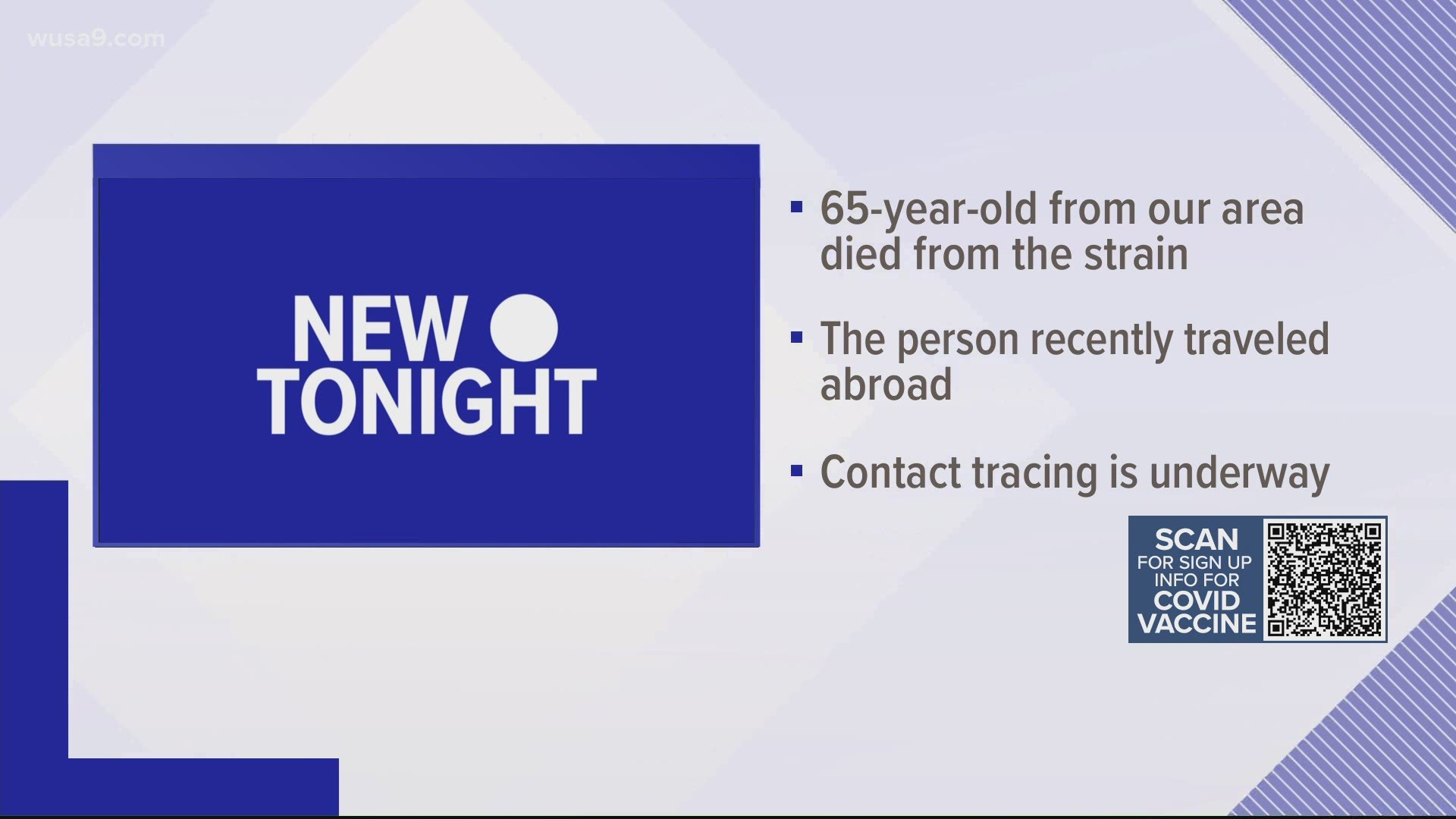MARYLAND, USA — The first case of the Brazil variant of COVID-19 in Maryland has been confirmed in a man who died, Gov. Larry Hogan said in a statement Wednesday.
The man diagnosed with the new P.1 variant, commonly called the Brazilian variant, was older than 65 and from suburban Maryland outside Washington, D.C. He died after recent international travel, state health officials said.
Officials are contact tracing to identify, quarantine and test anyone who may have been in contact with the man. Although the case was found in a person who traveled, many cases of variants haven't been connected with traveling-- indicating that there may be community spread of the variants, officials said.
The variant first identified in travelers from Brazil is believed to be more contagious than the initial strain of the virus that causes COVID-19, but it's unclear if the variant causes more severe illness than other variants, Hogan's statement said. The variant was first found in the U.S. at the end of last month.
Other variants discovered in the United Kingdom and South Africa are circulating globally, according to the U.S. Centers for Disease Control and Prevention.
Viruses constantly mutate, so new variants are expected over time, officials said. The Brazil one is the third coronavirus variant found in Maryland.
The state Department of Health said on Jan. 12 that the variant first found in the United Kingdom, B.1.1.7, was identified in Maryland. The South Africa variant, B.1.351, was found in Maryland in late January.
It's expected that coronavirus tests will detect the Brazil variant, officials said. The CDC says so far, studies suggest that currently authorized vaccines will work against the variants, and more research is underway.
“State public health officials are closely monitoring the P.1 variant, and we mourn the loss of this Marylander to COVID-19,” Hogan said. “As we continue to test for these variants, we strongly encourage Marylanders to continue taking precautions to keep themselves and their loved ones safe, including mask wearing, regular hand washing, and physical distancing.”

